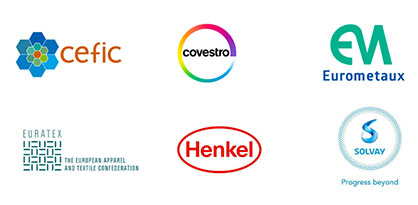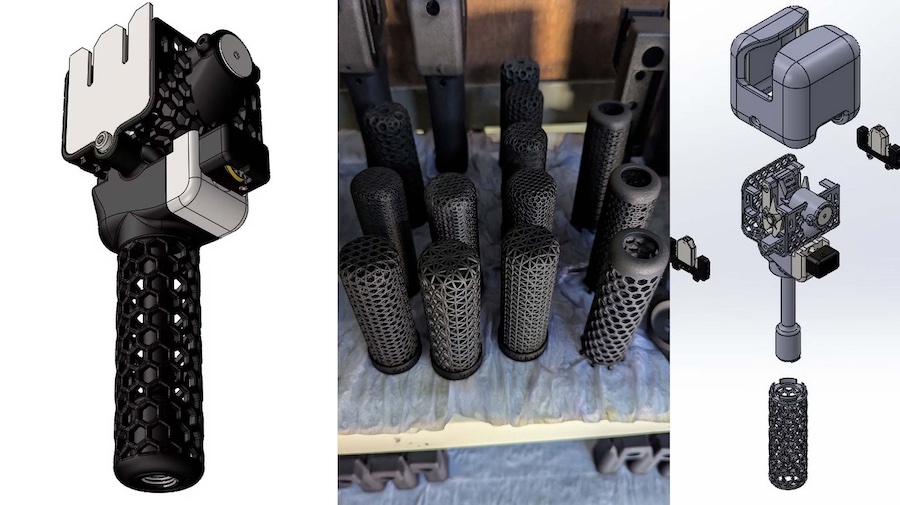#Associations
Joint statement on enforcement of EU Chemical Legislation ahead of the 2nd meeting of the High-Level Roundtable

Enforcement is also crucial for the competitiveness of EU businesses: no product (article, substance, or mixture) should enter the market if it does not comply with EU rules. This is why we fully endorse enforcement as the main topic for the second High Level Round Table on the Chemicals Strategy for Sustainability. In particular, we ask the European Commission and EU Member States to prioritise action on:
1. Tightening controls of imports of both, chemicals and goods, including online marketplaces.
• There is sufficient evidence that the vast majority of goods containing banned or restricted chemicals come from outside of the EU. This is a matter of consumer safety as many of these products are purchased online by individuals. The cases of non-compliance reported through the EU’s ‘Safety Gate’ are only the tip of the iceberg and many more cases often go unnoticed. Non-compliant products also reduce the competitiveness of EU domestic producers and distributors, who invested millions into compliance with the EU chemicals law.
In addition, as long as banned chemicals continue to enter the Internal Market through non-compliant imports and then enter the European recycling streams, ambitious EU circular economy objectives may not be achieved.
2. Ensuring new restrictions are 100% enforceable.
This means enforcement authorities need to have harmonised and standardised control test methods, the lab capacity, the budget and resources to check whether representative samples contain restricted chemicals or not. Such harmonised and standardised analytical methods need to be available before a restriction is adopted, otherwise market surveillance authorities and value chain cannot perform control checks. The chemical industry stands ready to contribute to the development of such analytical methods.
Moreover, an increasing number of restrictions have such a broad scope that it is difficult, if not impossible, to enforce them. For example, the upcoming restriction on skin sensitisers may impose checks on imported clothes against up to a thousand different skin sensitisers, whilst it is known that the market surveillance authorities do not have the resources and capacity to do that. With the move to generic approaches to risk management announced in the Chemicals Strategy for Sustainability, future restrictions are likely to cover hundreds of substances in many different uses. It means that we urgently need new solutions to check compliance. With the move to generic approaches to risk management announced in the Chemicals Strategy for Sustainability, future restrictions are likely to cover hundreds of substances in many different uses. It means that we urgently need new solutions to check compliance.
A proper enforcement of the existing regulatory measures is equally important as it would offer clarity and will be beneficial for industry, in particular for SMEs. Enforcement efforts should also prioritise the economic operators that already have a history of non-compliance.
All the mechanisms that are already in place can and should be used more efficiently to improve enforcement. For example, the role of the ECHA’s Enforcement Forum and other relevant knowledge networks should be strengthened to take a more systematic approach to assess enforceability and monitoring. In addition, more use should be made of the tools and networks under the Market Surveillance Regulation, adopted in July 2021.
3. Improving coordination and sharing of data between regulators, private sector and civil society can play a bigger role in supporting enforcement actions
For example, the private sector can alert authorities and provide them with data and sector-specific expertise to identify non-compliant products. Digitalisation of information should facilitate this process. There are already examples of the industry sectors setting up helplines to facilitate reporting of non-compliant articles and passing this information on to competent authorities (e.g. the F-gas sector). We need more of such examples of cooperation toquickly and more systematically identify problematic areas and initiate swift action to tackle non–compliance head-on. At the same time, fostering cooperation across the value chains and ensuring a clear allocation of responsibilities for non-compliance among all supply chain actors will also reduce legal uncertainty for downstream users.
Creating a toolkit of more efficient enforcement measures would make an enormous difference to public health and the environment. Doubling down on enforcement would also reassure those who comply with EU legislation and invest in sustainable chemistry and sustainable products that their competitiveness will remain safeguarded. In addition, effective enforcement will improve consumer trust in EU law.
THE UNDERSIGNED MEMBERS OF THE HIGH-LEVEL ROUNDTABLE ON THE IMPLEMENTATION OF THE CHEMICALS STRATEGY FOR SUSTAINABILITY

• Martin Brudermüller,President of the European Chemical Industry Council (Cefic)
• Sjoerd Dijkstra,Global Lead for Strategic Marketing and Sustainability, Covestro
• Ilham Kadri,CEO, Solvay
• Sylvie Nicol, Executive Vice President HR and Infrastructure Services, Henkel
• Guy Thiran, Director General, Eurometaux
Other associations supporting the statement:
• Dirk Vantyghem, Director General, The European Apparel and Textile Confederation (Euratex)














